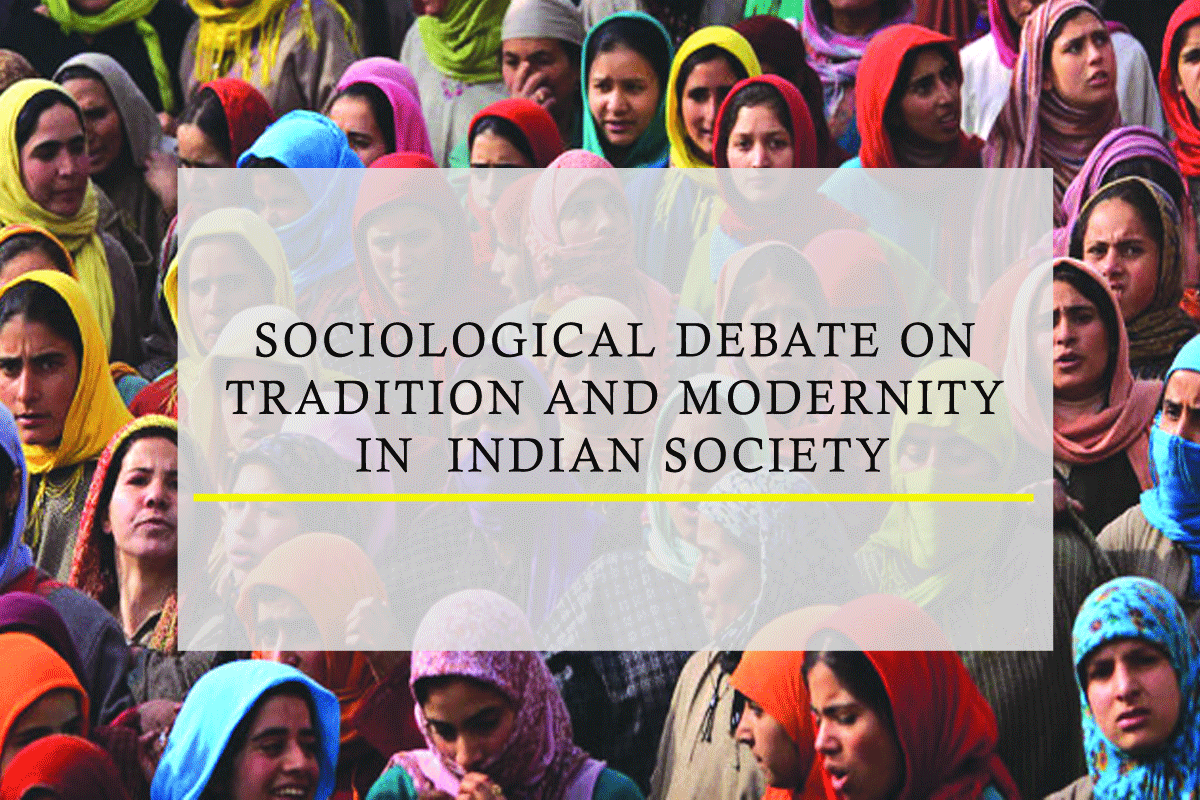A.R. Desai is a doctrinaire Marxist. He rejects any interpretation of tradition with reference to religion, rituals and festivities. It is essentially a secular phenomenon. Its nature is economic and it originates and develops in economics. He finds it in family, village and other social institutions.
He also does not find the origin of tradition in western culture. Quite like other Marxists, he employs production relations for the explanation of traditional social background of Indian nationalism is his classical work. The book is an excellent effort to trace the emergence of Indian nationalism from dialectical perspective.
According to him, India’s nationalism is the result of the material conditions created by the British colonialism. The Britishers developed new economic relations by introducing industrialization and modernization. The economic relationship is predominantly a stabilizing factor in the continuity of traditional institutions in India, which would undergo changes as these relations change.
Desai thinks that when traditions are linked with economic relations, the change in the latter would eventually change the traditions. It is in this context that he thinks that caste will disintegrate with the creation of new social and material conditions, such as industries, economic freedom, education, etc.
A.R. Desai’s definition of tradition is a watershed. He does not trace it from caste, religion and ritual. The dialectal history of India that he presents very clearly shows that traditions have their roots in India’s economy and production relations. Despite merit of the dialectical approach applied by A.R. Desai in the definition of tradition, Yogendra Singh argues that the merits are not without their weaknesses.
What is wrong with A.R. Desai is that he is very profound when he applies principles of Marxism in analyzing Indian situations, but fails at the level of empirical support. In other words, his theoretical framework can be challenged by the strength of substantial data. The critique of Yogendra Singh runs as under:
The important limitation of the dialectical approach for studies of social change in India is the lack of substantial empirical data in support of its major assertions, which are often historiographic and can easily be challenged.
In theoretical terms, however, this approach can be most viable for analysis of the processes of change and conflict in India provided it is founded upon a sound tradition of scientific research. Despite this limitation, some studies conducted on this model offer useful hypotheses, which can be further tested in course of the studies on social change.
Main Article : SOCIOLOGICAL DEBATE ON TRADITION AND MODERNITY IN INDIAN SOCIETY


YS’s critique of AR Desai’s dialectical approach is not flawless. His emphasis on “empirical tradition” is a contradiction in terms.